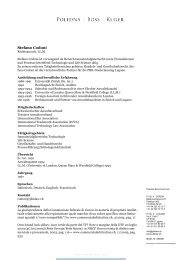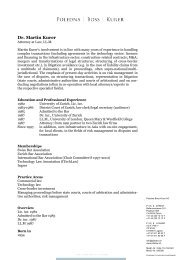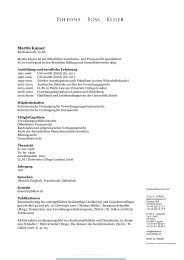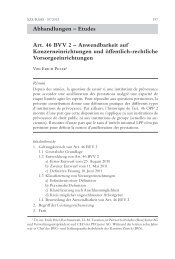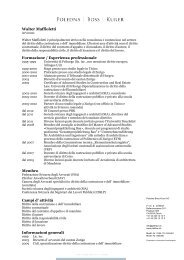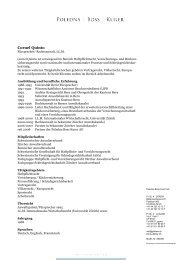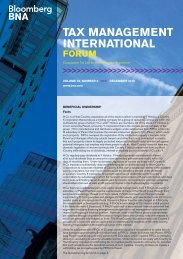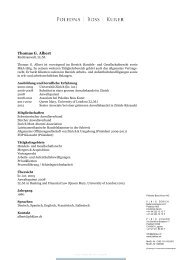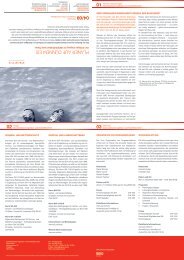721.8 kB - Poledna | Boss | Kurer
721.8 kB - Poledna | Boss | Kurer
721.8 kB - Poledna | Boss | Kurer
- No tags were found...
Create successful ePaper yourself
Turn your PDF publications into a flip-book with our unique Google optimized e-Paper software.
Exceptions Aimed At Foreign PayeesMost states permit a deduction for interest expensesor intangible expenses paid to a related foreignperson, but generally only if one or more of thefollowing requirements are met: (1) the recipient'sincome is subject to tax in a foreign country, (2)the recipient resides in a foreign country that hasan income tax treaty with the United States, (3) thetransaction is at arm's length, or (4) the transactionhas a business purpose other than tax avoidance.The specific requirements for the foreign payee exceptionvary from state to state, as illustrated by thefollowing examples:Georgia. The recipient is domiciled in a foreigncountry that has a comprehensive income taxtreaty with the United States, the expenses arearm's-length amounts, and the transaction has avalid business purpose. 36Illinois. The recipient's income is subject to incometax in a foreign country. 37Indiana. The recipient's income is subject toincome tax in a foreign country that is the recipient'scommercial domicile, the terms arecomparable to an arm's-length transaction, andthe principal purpose of the transaction is not taxavoidance. 38Massachusetts. In the case of interest expenses, therecipient's interest income is subject to income taxin a foreign country at a rate that is with withinthree percentage points of the state's statutory taxrate, the transaction reflects an arm's-length rateof interest and terms, and the principal purposeof the transaction is not tax avoidance. 39New York. The recipient's income is subject toincome tax in a foreign country that has a comprehensiveincome tax treaty with the UnitedStates, and is taxed at a rate at least equal to thetax rate imposed by the state. 40Virginia. In the case of intangible expenses, therecipient s income is subject to income tax in aforeign country that has a comprehensive incometax treaty with the United States. 41Many states that provide an exception for foreignpayees often require that the payee reside in a foreigncountry that has entered into a "comprehensiveincome tax treaty" with the United States. Table4 provides a listing of such countries, as defined byCode Sec. 1(h) . Many states also require that therelated party transaction giving rise to the interestexpenses or intangible expenses have a businesspurpose other than tax avoidance or that the principalpurpose of the transaction is not tax avoidance.Some states provide statutory definitions of a validbusiness purpose. For example, New York defines a"valid business purpose" as "one or more businesspurposes, other than the avoidance or reductionof taxation, which alone or in combination constitutethe primary motivation for some businessactivity or transaction, which activity or transactionchanges in a meaningful way, apart from taxeffects, the economic position of the taxpayer." 4246



